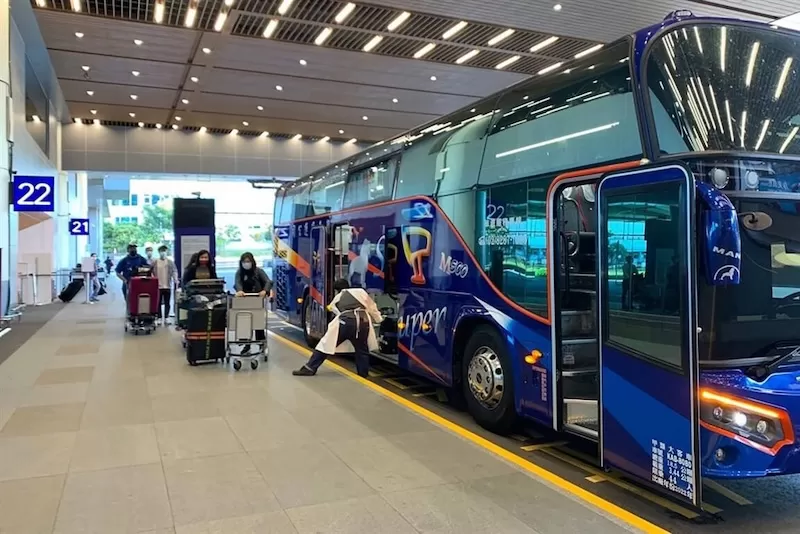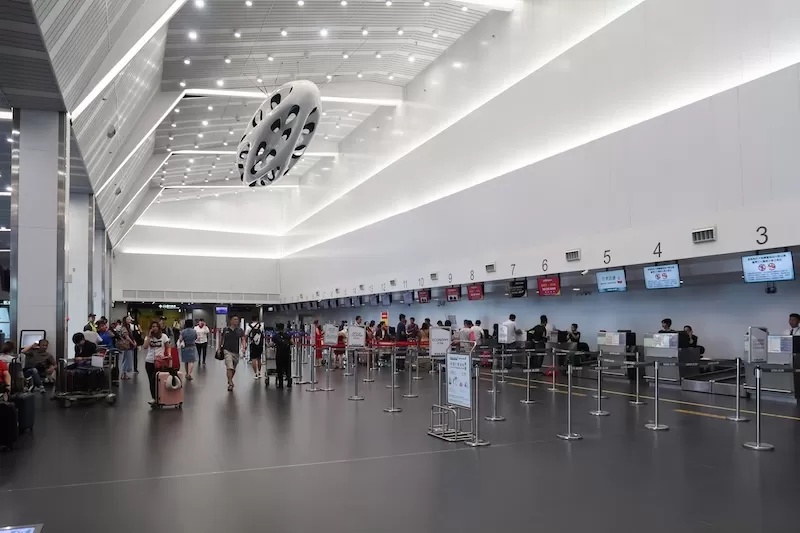Nestled in the heart of Taiwan, Taichung Airport stands as the third largest airport in the country, promising to be a vital hub for both domestic and international travelers. Whether you’re planning a business trip, a family vacation, or a solo adventure, understanding Taichung Airport’s offerings gives you an edge in your travel plans. Have you ever wondered what makes this airport unique and essential for navigating Taiwan and beyond? Let’s dive into the compelling details about Taichung Airport!
 Discovering Taichung Airport, the major airport in Taiwan
Discovering Taichung Airport, the major airport in Taiwan
1. Introduction to Taichung Airport
1.1 Where is Taichung Airport Located?
Located at 168 Zhonghang Road, Shalu District, Taichung City, Taichung Airport is officially named Taichung International Airport, with the airport code RMQ. With its geographically strategic site, the airport acts as a bridge for flights connecting to popular destinations in Thailand, Japan, South Korea, and Vietnam. It serves as a crucial link to neighboring airports, interlinking Taichung with cities like Tainan, Taipei, Taoyuan, and Kaohsiung.
Occupying an impressive area of over 88,445 square meters, Taichung Airport features two terminals equipped with various facilities, ensuring that travelers enjoy seamless travel experiences.
1.2 The History Behind Taichung Airport
The origins of Taichung Airport date back to the Japanese occupation, originally known as Kokan Airport. The airfield was repurposed as a military base for U.S. Air Forces in 1955, taking the name Ching Chuang Kang Air Base (CCK). In 1979, as diplomatic relations shifted, the military airport ceased operations, paving the way for civilian use.
By September 2003, significant infrastructure improvements transformed the airport into a travel hub tailored for passengers. The official opening of Ching Chuan Kang Airport took place in May 2004, marking Taichung Airport as the only airport serving the area. By 2008, the addition of a new terminal reflected the airport’s growth and burgeoning international traffic.
Taichung Airport underwent a substantial upgrade and modernization in November 2019 to increase capacity to accommodate up to 3.69 million passengers per year. This expansion reflects the airport’s commitment to adapt and thrive in a dynamic travel environment.
2. Distance from Taichung Airport to Downtown
Situated approximately 21 kilometers from Taichung’s city center, travelers can expect a typical travel time of around 40 to 50 minutes from the airport to the downtown area. Buses and taxis are the two primary modes of transportation available.
Buses are the most budget-friendly option, offering convenient connections directly from the arrivals area. There are four key bus stops to choose from:
- Taichung Railway Station: 100 CNY (~330,000 VND)
- Taichung Station: 48 CNY (~158,000 VND)
- Fengjia Night Market: 100 CNY (~330,000 VND)
- Taichung Park: 56 CNY (~185,000 VND)
On the other hand, taxis provide a more private and comfortable travel experience, especially for groups or families, with fares ranging from 115 to 150 CNY (~380,000 to 500,000 VND) per trip.
 Exploring Taichung Airport: A major transportation hub in Taiwan
Exploring Taichung Airport: A major transportation hub in Taiwan
3. Infrastructure at Taichung Airport
3.1 Runway Facilities
Taichung Airport operates a single robust runway measuring 3,659 meters by 651 meters, designed to handle various aircraft with confidence and safety.
3.2 Aircraft Parking Area
The airport features a sufficiently equipped parking area consisting of 7 parking positions for commercial aircraft and 5 spaces designated for helicopters. This versatile parking setup caters to mid-sized aircraft and similar models, streamlining takeoffs and landings.
3.3 Domestic and International Terminals
The airport is home to distinctly designed domestic and international terminals. The domestic terminal encompasses over 10,000 square meters, including facilities for lost luggage, security checks, airline check-in counters, and spacious waiting areas.
In contrast, the international terminal offers a more extensive layout, sprawling over 25,015 square meters across four levels:
- Ground Floor: Features a parking area, taxi, and bus stations, ATM services, baby care rooms, and restrooms.
- First Floor: Includes customs areas, airline ticket counters, insurance desks, communication counters, baggage check-in zones, tourist information, and convenience stores.
- Second Floor: This central area houses duty-free shops, passenger health inspections, and tourist service centers.
- Third Floor: Dedicated to immigration, featuring customs desks, additional duty-free shopping opportunities, VIP lounges, prayer rooms, and child-friendly recreational areas.
Taichung Airport boasts a modern terminal system filled with amenities designed to enhance travelers’ experiences.
Conclusion
Taichung Airport is more than just a transit point – it is an emblem of Taiwan’s connectivity to the rest of the world. With its historical significance, impressive infrastructure, and dedication to passenger comfort, the airport serves as a crucial node in the transportation network, enhancing travel experiences both domestically and internationally.
As you plan your next visit to Taiwan, or if you find yourself at Taichung Airport, remember the incredible journey that lies ahead. From its fascinating past to its current vibrancy, Taichung Airport awaits your exploration with open arms.
